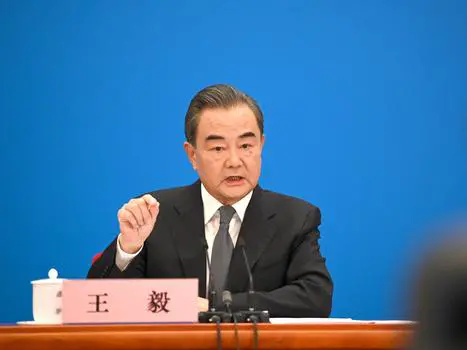As ten years of internal political and geographical division has passed between Palestine's Gaza Strip and the West Bank, analysts believe that the division may turn into "a reality of political and geographical isolation."
Outrage and dissatisfied comments of Palestinians prevailed on social media websites on Wednesday, which was the 10th anniversary of the Palestinian internal rift, the day Gaza Strip and the West Bank became divided.
The internal rift began in the summer of 2007 when Hamas Islamic movement forcibly seized control of the Gaza Strip following weeks of violent fighting with the Palestinian National Authority (PNA) forces.
Palestinian President Mahmoud Abbas sacked the unity government jointly formed between Hamas movement and Fatah, but Hamas rejected the decision and maintained its government running the Gaza Strip.
Despite the first unity government of independent ministers in June 2014, which was based on Cairo understandings to achieve reconciliation between the two parties, this did not contribute to the end of the rift.
Fingers were pointed at Hamas as it has kept a shadow government to run Gaza, but Hamas also accused the PNA of neglecting its responsibilities toward Gaza, especially the salaries of the civil servants PNA appointed in Gaza during the years of rift.
Ibrahim Abraash, a professor of political science from Gaza and former PNA minister of culture, descried the dispute all these years as a second Nakba for Palestinians since the 1948 Nakba which witnessed the Jews establishing a state on Palestinian lands.
"Palestinian dispute caused paralysis and destruction to the Palestinian national project. It dragged the political, social and economic situation of Palestinians decades to backward. It also weakened the Palestinian authority amid Israeli trolling of the Palestinians," Abraash said.
According to the professor, the dispute is more than a misunderstanding between Hamas and Fatah, but also an Israeli plan aimed to close out the Palestinian cause.
Many understandings reached between Fatah, Hamas and other Palestinian factions failed to end the dispute and recover the Palestinian unity between the West Bank and Gaza Strip.
Observers believe that the series of actions by both movements gradually worsened the rift rather than promoting previous understandings of reconciliation.
Since its command of Gaza, Hamas has formed a separated government by appointing more than 40,000 civilian and military employees in the coastal enclave.
On the other hand, the PNA continued to pay salaries for its 46,000 employees in Gaza and asked them not to go to work as a result of Hamas control of Gaza.
Three months ago, the Palestinian authority decided to cut the salaries of its employees in Gaza by more than 30 percent, a move that observers said would threaten to worsen the economy crisis of Gaza due to Israel's long-time besiege.
Later, Mahmoud Abbas announced his threat to take hard and unprecedented moves toward Gaza over the dispute.
Israel, on the other hand, decided days ago to cut down the power supply to the Hamas-run enclave by 40 percent following the Palestinian National Authority's announcement that it would pay only 60 percent of Gaza's monthly bill.
Georges Guqman, the chairman of the Institute for Democratic Studies in Ramallah, said the recent developments of increasing tensions between Fatah and Hamas clearly showed the deepening dispute in Palestine.
Hani Masri, a political and analyst writer from Ramallah, confirmed Palestinian neutrality toward the regional views is impossible without Palestinian unity.
He voiced his concerns about ending the dispute soon, saying the desired Palestinian unity seems impossible unless the Palestinian infighting pays the price.
Masri believed the Palestinian people must move on the basis of national and democratic unity with a real political partnership, as without a national rescue to the situation, the dispute will explode and turn the Palestinian cause into shrapnels.
(ASIA PACIFIC DAILY)
 简体中文
简体中文



